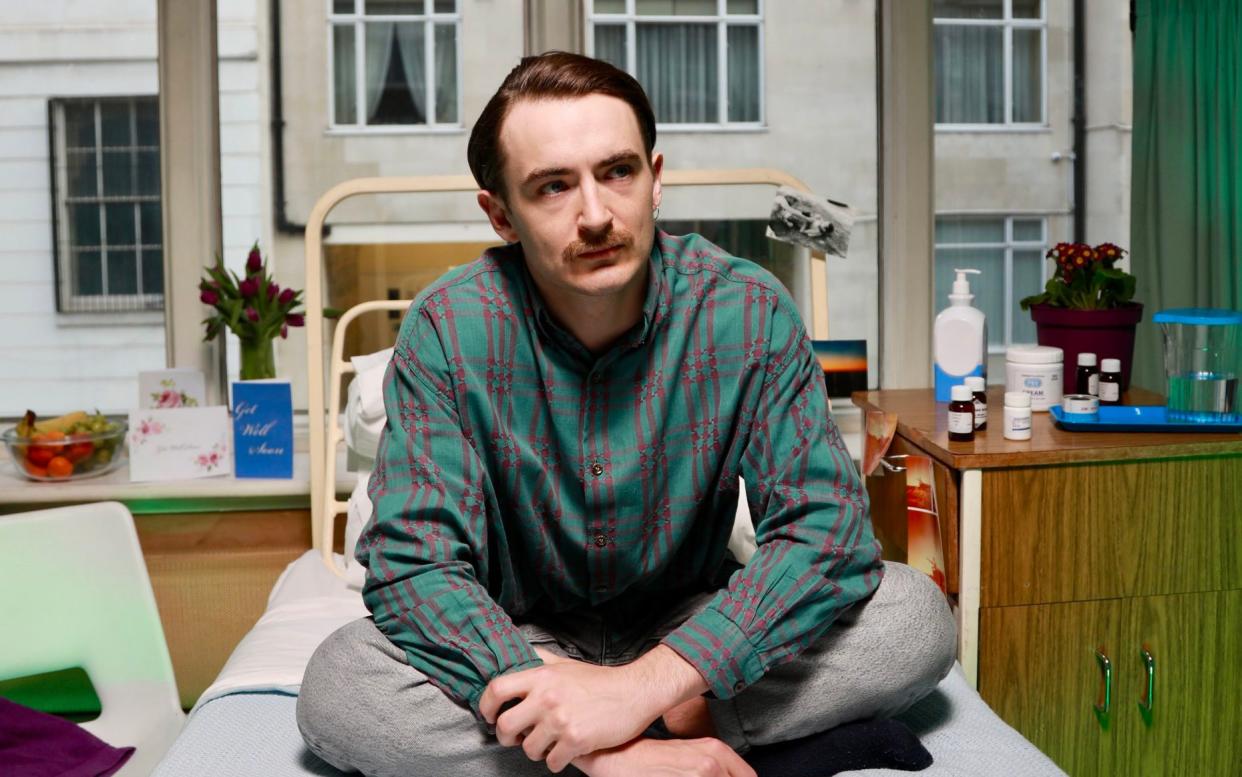Aids: The Unheard Tapes, review: voices from beyond the grave bring the devastation to life

- Oops!Something went wrong.Please try again later.
An awful realisation dawns in the first episode of Aids: The Unheard Tapes (BBC Two). This excellent three-part documentary takes a series of audio interviews with gay men, recorded during the 1980s and 1990s and archived at the British Library. These real voices are then lip-synced by actors. Technically, it is expertly done. The testimonies are varied – sad, funny, fearful, fearless. But as they talk about their lives, the penny drops that many, if not all of them, will die.
Frequently, it is a series that will move the viewer to tears. By using first-hand accounts, it also brings an era vividly to life. One contributor described the gay nightclub Heaven as “entrancing, enticing and unapologetic.” Meeting men there was “an act of liberation and defiance” at a time when being gay could get you sacked and sex before the age of 21 was illegal. The programme told us that “for most gay men, their formative years were ones of subterfuge and avoiding arrest”.
The first episode documented the arrival of HIV and Aids, initially little understood. The subject was dramatised, brilliantly, in Russell T Davies’s It’s a Sin. This documentary also features a cast in whose stories we become invested, although all are real people. Rupert Whitaker, still with us, spoke about his partner, Terry Higgins. Terry was a larger-than-life character and barman at Heaven. He was one of the first people in the UK to die of an Aids-related illness. Rupert, just 19, had to contend with his partner’s death and the dismissiveness of doctors. When he asked what Terry had died from, he was told to read about it in a medical journal.
Some of the attitudes of the time were shocking (and, no, they haven’t gone away entirely): homophobic headlines, HIV-positive men being shunned by their own families, a campaign to re-criminalise homosexual acts in private. But what shines through so powerfully is the kindness of others. Later in the series, staff who worked in the UK’s first purpose-built Aids ward recalled their work. Some of the patients wasting away in their beds had no visitors, either because they had been cast out or were too scared to tell friends and family about their diagnosis; volunteers came in to care for them, and nurses wheeled dying patients to a stage where friends and visiting drag queens would throw parties and put on performances.
The end brings a burst of relief to discover that some of the people on those tapes survived. But, mostly, you will remember the ones that did not.

